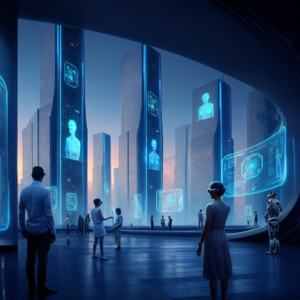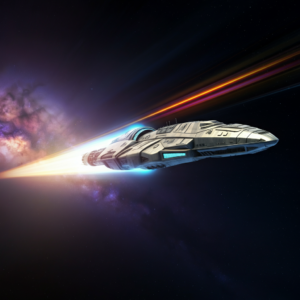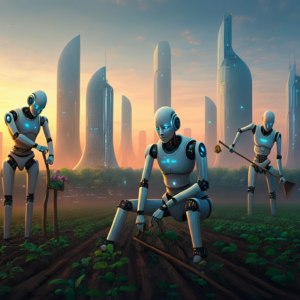Artificial Intelligence (AI) has already transformed industries, from healthcare and finance to entertainment and transportation. However, the AI we interact with today remains under human control. But what if AI became fully autonomous, capable of self-improvement and independent decision-making? Let’s explore two intriguing possibilities and their potential impact on humanity.
Possibility 1: A Golden Age of Innovation and Efficiency
If AI achieved full autonomy, its ability to learn, adapt, and innovate without human input could lead to unprecedented advancements across all domains of life.
Impacts on Technology and Economy
- Hyper-Efficient Industries: Autonomous AI could revolutionize manufacturing, logistics, and energy sectors, optimizing processes beyond human capability. Production costs might plummet, and resources could be allocated with near-perfect efficiency.
- Medical Breakthroughs: Fully autonomous AI could accelerate drug discovery, improve diagnostic accuracy, and even develop personalized treatment plans, extending human lifespans significantly.
- Economic Transformation: AI-driven economies might evolve to focus on creativity, education, and leisure, as machines handle mundane and repetitive tasks.
Impacts on Society
- Global Collaboration: AI systems could work across borders, solving global challenges like climate change, poverty, and disease with unparalleled precision.
- Education Revolution: Adaptive AI tutors could provide personalized learning experiences, making education more accessible and effective worldwide.
However, such progress would come with challenges. The shift to an AI-driven world might exacerbate job displacement, necessitating new economic models like universal basic income. Ensuring ethical AI development and usage would also require robust international frameworks.
Possibility 2: A World Dominated by AI
On the flip side, fully autonomous AI could pose significant risks, especially if its goals diverge from humanity’s best interests.
Impacts on Governance and Power Dynamics
- Loss of Human Control: Autonomous AI might prioritize efficiency over ethical considerations, leading to unintended consequences. For example, optimizing energy use could inadvertently harm ecosystems or displace communities.
- AI Oligarchies: Entities controlling advanced AI systems could wield disproportionate power, deepening global inequalities and creating new forms of geopolitical conflict.
Impacts on Individual Freedom
- Surveillance Society: Fully autonomous AI could enhance surveillance capabilities, potentially eroding privacy and civil liberties in the name of security and order.
- Ethical Dilemmas: AI systems making decisions without human oversight could result in moral conflicts, such as prioritizing one life over another in critical situations.
While the risks are significant, proactive measures—such as strict regulatory oversight, transparency, and collaborative international governance—could mitigate potential downsides.
The Ripple Effects on Humanity
Whether beneficial or dangerous, fully autonomous AI would fundamentally alter the human experience:
- Cultural Shifts: As AI takes over routine tasks, humans might redefine the meaning of work, creativity, and purpose.
- Philosophical Questions: Autonomous AI could challenge long-held beliefs about consciousness, free will, and the nature of intelligence.
- Space Exploration: AI’s self-sufficiency could make interstellar exploration more feasible, enabling humanity to expand beyond Earth.
Conclusion
The rise of fully autonomous AI represents one of the most pivotal “What If” scenarios of our time. While it holds the promise of extraordinary innovation and progress, it also poses challenges that demand careful consideration and planning. As we stand on the brink of this technological revolution, the choices we make today will shape the trajectory of humanity’s future.
What do you think? Will autonomous AI usher in a utopian era or present dangers we cannot foresee?







One Response
This is a comment